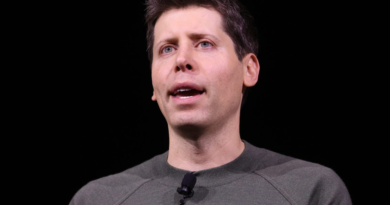Europe’s billionaires—who pay their family office CEOs just $370,000 a year—are worried they can’t find the talent to manage their fortunes
Europe’s ultra-high-net-worth families are moving fast to get their affairs in order ahead of the Great Wealth Transfer, but the biggest challenge to handing over their fortunes is an apparent lack of available workers keen to take a pay cut to manage their billions.
A new report by HSBC Global Private Banking and Campden Wealth looked at the state of European family offices, surveying 101 offices that accounted for $136 billion in combined wealth. Ensuring strong returns and learning how to roll out generative AI were key concerns from those families.
The biggest obstacle, however, is finding suitable people to manage their fortunes.
More than a third (36%) of wealthy respondents to the survey said there was a limited pool of available talent with the appropriate personal skills to manage their estates. Just under a third (32%) said they struggled to find leaders with suitable interpersonal skills.
Operating a family office can be a lucrative gig. The research shows the best-paid CEOs at family offices rake in $500,000 (€476,000) a year, though the average is $288,000 (€274,600). While attractive, the figures don’t compare favorably with other investment jobs at a similar level. Executive search firm Heidrick & Struggles found the average salary for private equity-backed CEOs was $447,000 (€426,000).
Meanwhile, the lowest-paid family office CEOs only earn around $120,000 (€114,000) a year.
Billionaires look outside the family
Looking deeper into the figures, families with more than a billion dollars in assets pay their CEOs on average just $370,000 (€353,000) a year in base salary, with an 88% bonus.
The baseline figure represents less than 0.037% of those families’ fortunes. For family members, the figure is lower, as it is for CEOs of family offices worth less than $500 million.
In a bid to attract talent, the report says, family offices are turning to added incentives to get the best talent on board. Most offer a discretionary performance bonus, while a minority co-investment opportunities or a share of generated profits.
Family offices have historically used prestige to recruit leaders, who are also lured in by their smaller setup. They are typically in the single digits of employees, allowing each worker to have a defined impact. They also tended to attract heirs keen to carry their legacy.
However, there are fears these factors don’t have the same pull for non-family members as they once did. Meanwhile, younger generations are increasingly less enthralled with retaining their parents’ legacy and more interested in building their own.
One U.K. founder of a family office told the authors: “I think that there’s going to be a shortage of people to run family offices. The family members who were born in the 1960s and have been running the family office for 15 years or 20 years are retiring.
“Many next gens will want to do their own thing away from the family office and recruitment of staff will become progressively harder. Who is going to fill the gap? Family offices will be forced to bring in more professional staff from financial institutions and their culture will change.”
One family office CEO, however, told the authors that compliance and regulatory overload at larger investment firms was making more investment managers consider moving over to a smaller family office setup.
The attractiveness of hiring a non-family member to manage a family office is growing as baby boomers hand their companies and fortunes over to the next generation. This can save a grisly succession battle among offspring, which increasingly involves multiple siblings and even cousins descending from the same founder.
“The CEO of a U.K. family office told the authors: “Among our next gens are seven cousins, the offspring of three siblings. All or some will go on to work in the family business or family office. I’m not sure how well they will be able to work together if there are effectively seven family members competing for the top job.”




